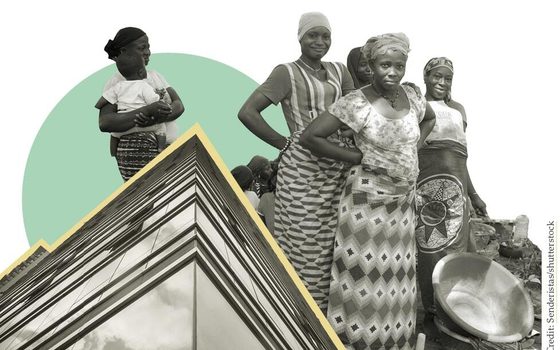Distant neighbours
Poverty and inequality in Islington
02 October 2013
Poverty is deepening and inequality is widening in Islington. After five years of economic uncertainty, public sector cuts, and now welfare reform, lower-income residents are under more pressure than ever. The gap between the wealthiest and the rest is growing as house prices and wage polarisation squeeze middle-income families.
By 2020, Islington will be a starkly polarised and unequal borough. Despite these challenges this report shows that local actors can make a difference in the face of change. It identifies key areas in which action can make a positive difference to the lives of Islington residents, now and in the long run.
This report is about poverty and inequality in Islington. Through interviews with low and high earners in the borough, as well as statistical analysis of key trends, Distant neighbours explores:
- how life has changed for Islington’s lower-income residents during a period of economic uncertainty, public sector cuts, and welfare reform.
- what inequality looks like in Islington, how people experience it, and what the consequences are for all of us.
- how current trends will continue into the future and what Islington might look like in 2020.
- what can be done locally to address poverty and inequality.
In contrast to its image of boutique shops, top-end restaurants, and a thriving night life, Islington has long been a borough of entrenched poverty and wide inequalities. In 2008, Cripplegate Foundation’s report Invisible Islington painted a rich picture of the lives of the borough’s lower-income residents. It showed how people were struggling with worklessness, debt, social isolation, and poor physical and mental health. Our research suggests that over the last five years poverty has deepened and inequality has widened.
- Poverty is intensifying in Islington. There have always been lower-income residents living in Islington, struggling with poverty. Today, life is much harder due to five years of economic uncertainty, public sector cuts, and now welfare reform. People on low incomes feel insecure. They feel they have no control over their lives. They fear destitution. Social isolation and mental ill health are worsening. Child poverty is particularly high, and likely to grow. Finding work is not always the answer to poverty in Islington. Our research shows that the London Living Wage (LLW) is not enough for the majority of household types in Islington.
- Middle-income families have been squeezed out of Islington. Islington is fast becoming a place where middle-income families can no longer afford to live. The middle market in homes is disappearing as house prices soar. Wages are also stagnating, especially for middle- and lower-income earners. This means that middle-income families have been squeezed out of the borough and only certain groups on middle incomes – single people and couples without children living in flat shares – will be able to stay.
- By 2020, only the wealthiest will be able to afford to live in Islington. We predict that by 2020 a family will need to earn more than £90,000 a year to afford market rents in Islington. House buying will be out of reach for almost all but the very top earners. This will leave Islington polarised, with very wealthy families at the top, a youthful, transient and childless sector in the middle, and those on low incomes at the bottom, living in social housing. The social consequences of living in an economically polarised borough which are revealed by the research – residents leading separate lives, lack of understanding between groups, and social alienation – are likely to grow.
The issues raised in this report are both wide ranging and complex. However, action to address poverty and inequality in Islington is possible. Cripplegate Foundation, keen to learn about residents’ experiences of poverty and inequality and thus inform its future work, commissioned this report. Based on our findings we identify three broad areas for action. These range from opportunities for immediate local action, to longer-term preventative measures, to advocating for wider change beyond the borough.
- Make a difference today. The most direct and immediate way in which organisations such as Cripplegate Foundation can address the issues raised in this report is through local action. Building on the success of the initiatives developed after Invisible Islington, Cripplegate Foundation could make a difference today by investing in mental health and well-being initiatives, supporting initiatives to reduce social isolation the borough, enabling lower income families to access alternative forms of credit, and supporting young people to develop their capabilities.
- Invest upstream to prevent poverty and inequality. Cripplegate Foundation could play a role in ensuring that valuable preventative work continues in Islington. This could best be achieved by partnering more closely with universal service providers, such as General Practitioners (GPs) and Registered Social Landlords (RSLs), and by working more collaboratively with local residents.
- Advocate for change beyond Islington. Cripplegate Foundation can use its position as a respected local foundation to advocate for change within and beyond the borough. This could be approached on an issue-by-issue basis, including: affordable and decent quality housing; secure and well-paid jobs and apprenticeships; and access to credit, building on the successful work of the Islington Debt Coalition.
Topics Inequality Public services






